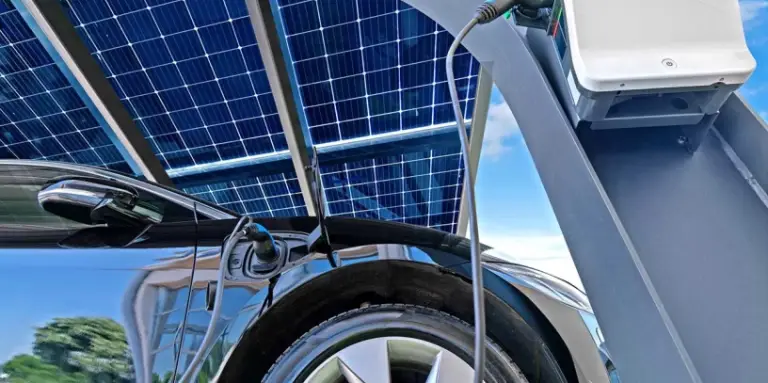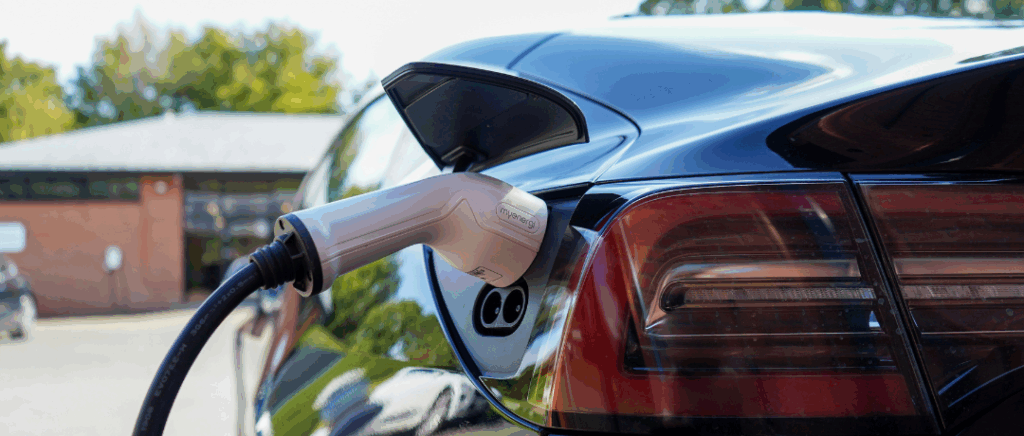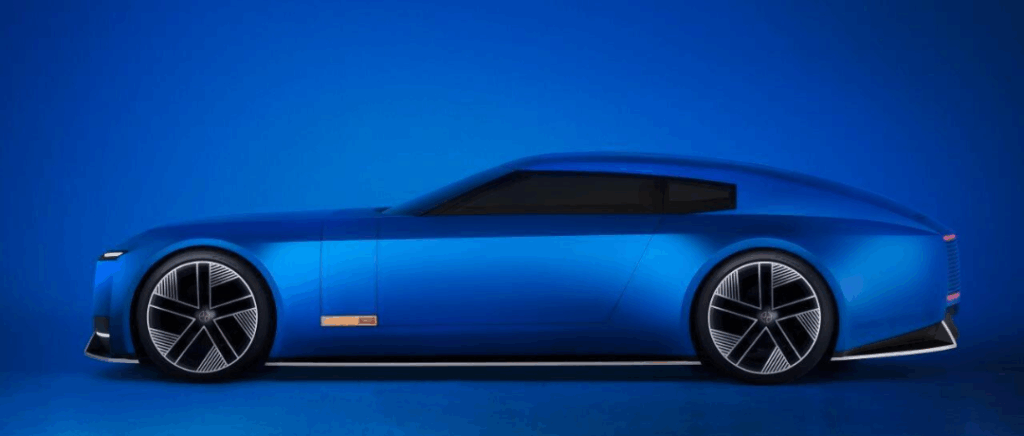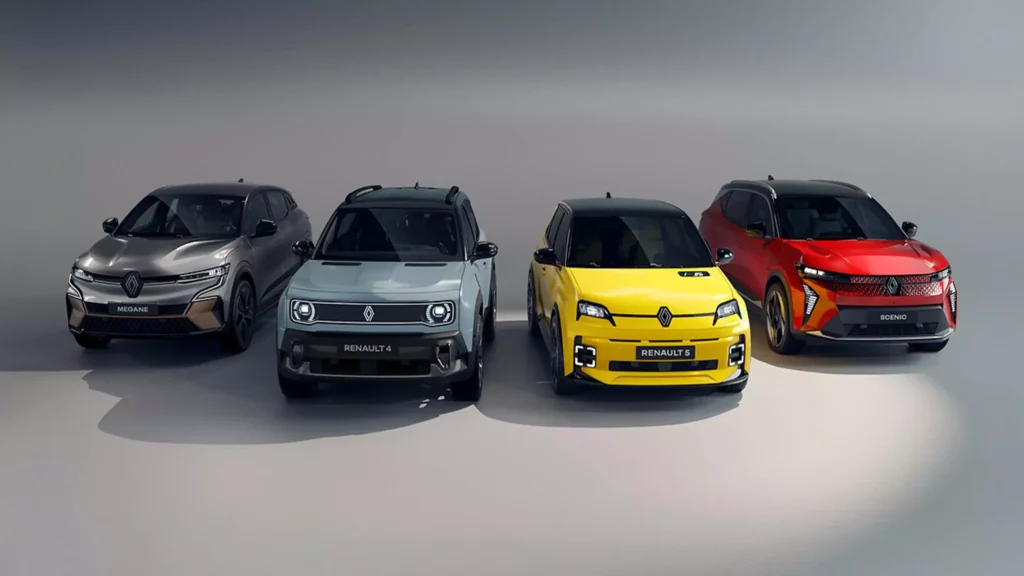Why not install photovoltaic solar panels?
With Beev, get a turnkey solar panel solution to reduce your electricity consumption.
Understanding the obligation for companies to have charging points in their car parks
Why do companies have to comply with these regulations?
There are several fundamental reasons why companies need to comply with these regulations. First of all, it is part of the wider framework of energy transition and the fight against climate change. The main aim is to accelerate the development of electric mobility in France, by making electric vehicles more practical and accessible for company employees and visitors.
La law on the orientation of mobility (LOM) has set ambitious targets, including that of achieving 70% of electric or plug-in hybrid vehicles in company fleets by 2030. To achieve this target, it is crucial to increase the density of the charging network, particularly in workplaces where vehicles are parked for long periods.
These regulations are also designed to meet the growing needs of electric vehicle owners. With the rapid increase in the number of electric vehicles on the road, it has become necessary to ensure the safety of these vehicles. recharging infrastructure to support this growth and encourage more people to opt for electric vehicles.
Finally, by imposing these obligations on businesses, the government is seeking to involve the private sector directly in the transition to more sustainable mobility. Not only does this allow the costs of recharging infrastructure to be shared between the public and private sectors, it also encourages businesses to play an active role in reducing transport-related greenhouse gas emissions.
What sectors and types of site are affected by this obligation?
This obligation applies to a wide range of sectors and types of site, reflecting the legislator's desire to make charging stations widely available in all professional and commercial areas.
Firstly, this applies to all non-residential buildings with car parks of more than 20 spaces. This includes a wide variety of sectors such as industry, services and commerce. Tertiary and industrial sites, as well as those open to the public, are also subject to this obligation.
More specifically, shopping complexes and cinemas are explicitly mentioned in the regulations. These places, which attract large numbers of visitors and often have large car parks, are particularly targeted for the installation of charging stations.
For outdoor car parks, an additional obligation applies from a surface area of 1,500 m². These car parks must not only be equipped with charging stations, but also with photovoltaic shading, thus combining renewable energy production with charging infrastructure for electric vehicles.
It is important to note that specific obligations may vary depending on a number of criteria:
- The date of the building's last planning permission
- The size of the car park
- The number of inhabitants in the urban area where the site is located
For example, for new buildings for which planning permission is granted after 11 March 2021, the obligation is stricter, with pre-equipment required for 20% parking spaces.
From 1 January 2025, all new and existing car parks with more than 20 spaces will have to be equipped with at least one charging point, with increasing requirements for larger car parks.
These extensive regulations are designed to ensure broad and uniform coverage of charging infrastructure, thereby facilitating the uptake of electric vehicles in all sectors of the economy and for all types of users, whether employees, customers or visitors.
What are the advantages for businesses of installing shaded areas with charging points?
An ecological solution that enhances your company's brand image
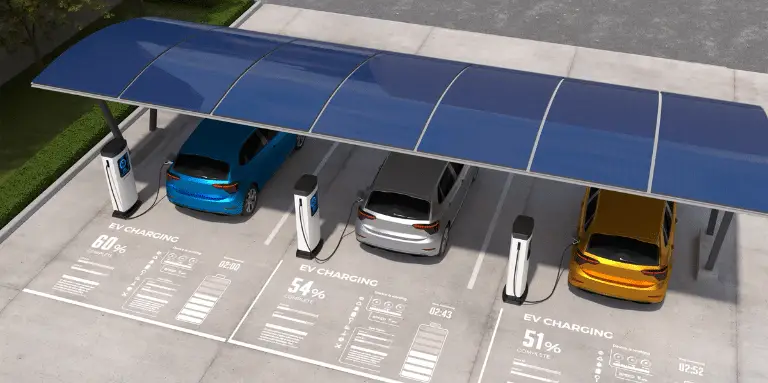
By adopting this technology, businesses can considerably enhance their eco-responsible image. By installing photovoltaic shading systems with charging stations, companies are demonstrating a concrete commitment to the energy transition and sustainable mobility. This initiative positions the company as a modern, proactive player in the fight against climate change.
This ecological approach is particularly appreciated by customers and partners who are increasingly sensitive to environmental issues. It allows us to stand out from the competition and attract customers who care about the environment. What's more, this visible commitment strengthens employees' sense of belonging to a responsible company, which can improve the employer brand and make it easier to recruit talent.
Reduced energy costs thanks to integrated solar panels
Integrating solar panels into car park shade structures offers a significant opportunity to reduce energy costs for the company. This solution enables green electricity to be generated on site, which can be used to power the charging points and other energy needs of the company.
By coupling charging points with solar panels, businesses can optimise their energy consumption and reduce their dependence on the traditional electricity grid. This autonomy Partial energy efficiency not only saves money in the long term, it also protects against fluctuations in electricity prices.
What's more, the surplus energy produced can be sold back to the grid, creating an additional source of income for the company. Although the initial investment may be substantial, the savings made on the running costs of the vehicle fleet and on the company's overall energy requirements provide an attractive return on investment over the long term.
Regulations and deadlines: what does the Aper law say about photovoltaic shading?
The APER law, adopted on 10 March 2023, requires theinstallation of photovoltaic shading on car parks of more than 1,500 m2, covering at least half of their surface area. This obligation applies to all types of outdoor car park, whether private or public, including company car parks, railway station car parks, airport car parks, supermarket car parks and shopping centre car parks.
Le decree no. 2024-1023 specifies the methods for calculating the surface areas concerned and the possible exemptions. The aim of this measure is to encourage the development of solar energy and accelerate the energy transition in France.
What are the compulsory installation deadlines and criteria for companies?
| Type of car park | Size / Management | Deadline for compliance |
|---|---|---|
| New car parks or car parks for which planning permission has been sought after 10 March 2023 | All types | Immediate obligation |
| Existing car parks under concession or public service delegation arrangements | Contract concluded before 1 July 2026 | 1st July 2026 |
| Existing private car parks | Contract concluded after 1 July 2026 | 1st July 2028 |
| Surface area ≥ 10 000 m² | 1st July 2026 | |
| Exemptions | Surface area between 1,500 m² and 10,000 m² | 1st July 2028 |
| Car parks shaded by trees or located in protected areas | Not concerned |
What are the penalties for non-compliance with the new rules?
Failure to comply with the obligation to install photovoltaic shade systems can result in significant financial penalties. For car parks with a surface area of less than 10,000 m2, the fine can be as high as 20,000 euros, while for those with a surface area of 10,000 m2 or more, the fine can be as high as 40,000 euros.
These penalties are renewable every year until the car park is brought into compliance. In addition, legal action may be taken by the relevant authorities to force compliance. It is important to note that these penalties do not apply to new car parks of less than 1,500 m2 or to car parks that are already covered.
| Aspect | Details |
|---|---|
| Financial penalties for car parks < 10,000 m². | Up to €20,000 |
| Financial penalties for car parks ≥ 10,000 m². | Up to €40,000 |
| Frequency of sanctions | Renewable every year until compliant |
| Additional legal actions | Remedies available to the authorities to force compliance |
| Exceptions | - New car parks < 1 500 m² - Car parks already covered |
| Application of penalties | Failure to comply with statutory time limits |
Financing your shade and charging point projects
Photovoltaic shading and charging station projects will benefit from a wide range of financial incentives in 2025. For shading systems, the government is offering grants of between €100 and €300 per kWp, depending on the power installed, for installations of up to 100 kWp. The regions also offer subsidies, as in the Île-de-France region, where funding can reach 50% of the amount including or excluding VAT, with a ceiling of €300,000.
For charging stations, the ADVENIR bonus covers up to 50% of the costs, with a maximum of €9,000 per station depending on usage. What's more, some regions, such as Occitanie, are offering up to €3,000 per charging point for businesses.
Calculation example
Installation of photovoltaic shading systems
A company installs a photovoltaic shade of 80 kWp. State aid ranges from 100 and €300 per kWp depending on the power installed.
- If the company receives aid from 200 per kWp : 80 kWp × €200 = €16,000 state aid.
- If it is located in Île-de-France and its project costs 200,000 INCL. VATthe region finances 50% of the amount including taxor 100 000€but with a ceiling of 300 000€which is respected here.
Total possible grants: €16,000 (State) + €100,000 (Region) = €116,000
Installation of charging stations
A company installs 3 recharging points for its employees. Each terminal costs 15 000€.
The ADVENIR premium covers 50% cost per terminalwith a maximum of 9 000€ :
- 50% of €15,000 = €7,500 (below the €9,000 ceiling, therefore taken into account)
- Total ADVENIR aid : 3 × 7 500€ = 22 500€
Visit Occitaniaadditional aid from 3,000 per terminal is possible:
- 3 × 3 000€ = 9 000€
Total possible grants: €22,500 (ADVENIR) + €9,000 (Region) = €31,500
See also our article :
How can I benefit from tax credits and regional subsidies?
To benefit from tax credits and regional grants, it's essential to plan your project carefully. Start by checking your eligibility with the relevant bodies, such as ADEME or your regional council. For photovoltaic shade systems, make sure your project meets specific criteria, such as a minimum output of 10 kWp in the Île-de-France region.
When it comes to charging points, check that your installation complies with current standards and is carried out by an IRVE-certified professional. Prepare the necessary documents, including detailed estimates, invoices and proof of payment. Don't forget to find out about any local grants specific to your region, as they can vary considerably from one area to another.
How can you equip your business with charging stations?
To equip your business with photovoltaic shading and charging stations, start by assessing your specific needs. Determine how many electric vehicles you need to charge and how often you plan to use them. Choose photovoltaic shade systems suited to the surface area of your car park, aiming to cover at least 50% of it in accordance with the APER law. When it comes to charging points, opt for an appropriate power rating, generally between 7.4 kW and 22 kW for efficient recharging. Consider installing charging points compatible with different types of connector to ensure maximum compatibility with your employees' and visitors' vehicles.
What are the criteria for choosing a reliable supplier?
When choosing a reliable supplier of photovoltaic shading systems and charging stations, there are several essential criteria to consider. Firstly, make sure the company has the necessary certifications, including IRVE qualification for installing charging stations. The supplier's experience and reputation are also crucial; look for positive customer reviews and solid references in the field. A trustworthy supplier must be transparent about its products and services, and offer responsive and competent customer support. Look for companies that offer a complete solution, from initial assessment to post-installation maintenance, with flexible contract options to suit your needs.
The supplier's financial stability is a guarantee of its ability to honour its commitments over the long term. Finally, make sure that the supplier complies with current standards and offers solid guarantees on its equipment and installations.
Call on Beev to help you with your business project.installation of photovoltaic panels or installation of recharging points for professionals. Beev stands out for its turnkey approach, its reverse auction system to get the best prices on the market, and its personalised follow-up with a 10-year guarantee. Their expertise and commitment to providing tailor-made solutions make them the partner of choice for companies looking to equip themselves with photovoltaic shading systems and charging stations.
Conclusion
In conclusion, the APER law represents a significant step towards the energy transition, by providing a strong incentive for businesses to equip themselves with photovoltaic shading systems and charging stations. Understanding the obligations, deadlines and benefits of these regulations is essential for any company concerned.
Given the complexity of these projects, it makes sense to call on a trusted partner like Beev. Its expertise, turnkey approach and customised solutions will enable you to navigate this new regulatory framework with peace of mind and turn this obligation into an opportunity for sustainable development and cost reduction.
